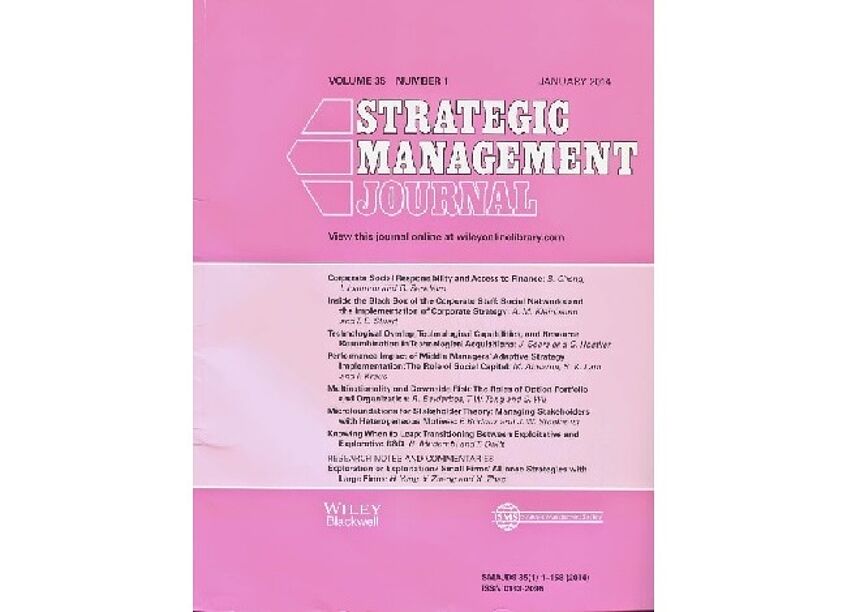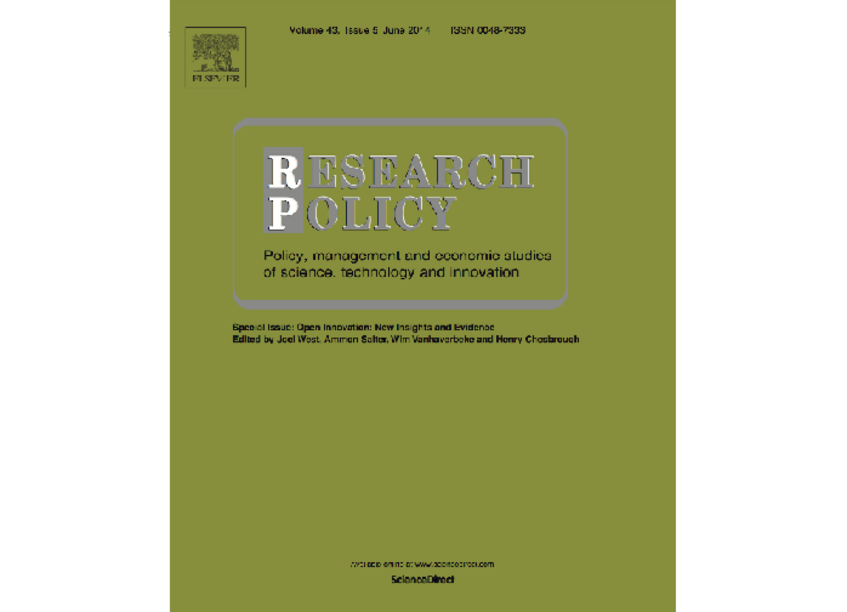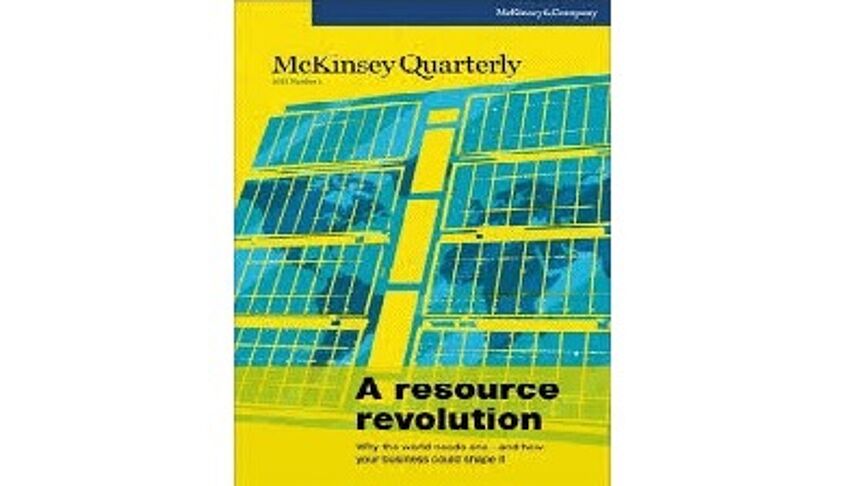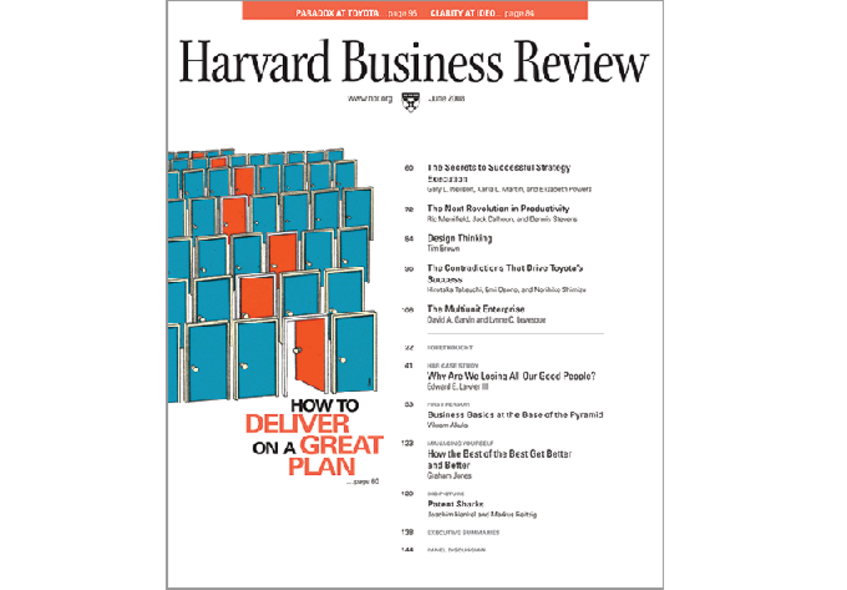Strategy
A recurrent theme in our strategy papers is a focus on capturing or appropriating value from innovation. Currently, we are much interested in value creation approaches that are designed with an eye on eventual appropriation.
Ongoing Research
“Competing for Technologies vs Co-Specializing in joint Systems – Evidence from Wireless Standards”
Firms may benefit from spreading R&D efforts across technologies despite their forgoing benefits of technological specialization. By distributing their technology investments across one value chain for example, organizations may create bargaining power over their suppliers and buyers and/or learn about and from their upstream and downstream partners. Equally, by spreading their R&D efforts across different value chains, firms may hedge against the technological risk associated with the potential failure of one solution. However, why would firms invest in competing technologies (i.e. across value chains) in the absence of such technological uncertainty? Together with Ramon Lecuona, we plan on examining this question in more detail. More specifically, we seek to understand if extending horizontal scope in such ways may serve organizations to create bargaining power over their competitors and co-operation partners in so-called systems industries. By mapping patents to a matrix of technical components of two competing wireless technologies (GSM and CDMA), we plan on tracking the successfulness of horizontal and vertical corporate R&D allocations.
"Co-operation, Competition, Break in Symmetry, and the Value of Managerial Intelligence - A Simulation Approach"
Does intelligence matter when managers have to trade-off between the effects of co-operation and competition? How come asymmetric outcomes emerge from perfectly symmetric competitive starting conditions? This research paper, co-authored with Massimo Warglien, picks up on this question. We intend to simulate different "population strategies" for technology spaces, in order to compare the profitability of those strategies that vary with regards to their underlying managerial intelligence.
Working Papers

“How much to Integrate? - Firms' Profit Maximizing R&D Allocations in Emerging Standard Settings"
In this work, conducted with Tobias Kretschmer, we formally model firms' trade-offs between specialization and diversification in complex technology environments in which different forces such as transaction costs, learning-based complementarities, and demand-side externalities pull in different directions. Our work contributes to both the mechanistic debate of integration decisions in the property rights literature, and to the literature on technology standard wars. A first working paper should be available shortly.

"Patent Trolls and the Sustainability of Value Destruction Strategies”
In this paper (with Joachim Henkel) we provide a detailed formal analysis of the business model pursued by a weird type of commercial entity. We argue that so-called patent trolls (or sharks) – firms that do not create value – manage to create and sustain a competitive advantage. As such, they pose one of the major challenges to both the theoretical understanding and practise of R& D-related strategy. We formally identify their different types of blackmailing strategies and we argue that at least one type of troll strategy will survive any policy changes intended to counteract the infringement business.
Published/Forthcoming Papers

“Surrendering Control to Gain Advantage: Reconciling Openness and the Resource-based View of the Firm”
This article, co-authored by Oliver Alexy, Joel West, Helge Klapper, and Markus Reitzig, and forthcoming in the Strategic Management Journal, studies strategic openness - firms voluntary forfeiting of control over resources, which seemingly challenges the premise of the resource-based view (RBV). The latter posits that firms should control valuable, rare, and inimitable (VRI) resources. We reconcile this apparent paradox by formalizing whether and when firms—consisting of resource bundles and deriving competitive advantage from exploiting selected VRI resources—may maximize profitability by opening parts of their resource base. As such, our paper refines RBV-related thinking while supporting the theory’s core tenets. Notably, we illustrate how a common-pool resource can become a source of competitive advantage and how firms may use openness to shape inter-firm competition.

"Firms' Counterintuitive Appropriation Strategies - Private-Collective Innovation and Competition"
In this article, co-authored with Oliver Alexy and forthcoming in Research Policy, we analyze the corporate motives and successfulness of firms' strategies to donate intellectual property rights. By doing so, we advance theory on private-collective innovation by arguing and empirically demonstrating that firms may benefit from creating IP-free zones in order to maintain risk-free access to innovative efforts by open communities.
This, so we propose, is the case when private-collective innovators face competition from purely proprietary innovators.
A video abstract of an early presentation of the results in Zurich can be found here.

"Managing the Business Risks of Open Innovation"
In this paper, co-authored with Oliver Alexy and published in McKinsey Quarterly 2012, we examine in which industries open innovation may become a viable substitute for established proprietary innovation. Extrapolating from our in-depth studies in the infrastructure software sector, we discuss how firms may want to think about adjusting their business models across sectors in the future to deploy open innovation in a risk-mitigating way.

“The Hidden Costs of Outsourcing - Evidence from Patent Data”
In this project, we integrate value appropriation activities into the existing theory of how innovative firms should optimally draw their boundaries. The first paper, analysing firms' costs of forgetting knowledge through outsourcing, is co-authored with Stefan Wagner and was published in the Strategic Management Journal in 2010.

“Collateral Damage for R&D Manufacturers - How Patent Sharks Operate in Markets for Technology”
This paper, co-authored with Joachim Henkel and Ferdinand Schneider, presents an empirical analysis of different assault strategies pursued by patent trolls against R& D intensive firms. The article is the empirical counterpart to theoretical works with Joachim Henkel, and it appeared in Industrial and Corporate Change in 2010.

“Value Appropriation as an Organizational Capability: the Case of IP Protection Through Patents“
In this paper, co-authored with Phanish Puranam, we try to understand which organizational determinants constitute a firm's capability to appropriate returns from its innovative activity. We argue that intermediate levels of cross-functional involvement across intellectual property (IP) generation, protection, and utilization activities outperform very high or very low levels of functional specialization in terms of obtaining rapid patent protection; while these activities are distinct enough to generate gains from specialization, there are also significant gains to be generated by coordinating across them, which cross-functional involvement achieves. A joint publication appeared in the Strategic Management Journal (2009).

“Big Picture - Patent Sharks”
In this paper with Joachim Henkel, printed in the June 2008 issue of Harvard Business Review, we sketch how R& D-intensive manufacturers can forearm themselves against the threats posed by patent sharks. We suggest ways of proactively adjusting R& D strategies in order to preempt shark attacks.

“On Sharks, Trolls, and Their Patent Prey”
In this paper, crafted jointly with Joachim Henkel and Christopher Heath, we examine how (small) litigious patent holders benefit from legal loopholes, what R& D manufactures need to contemplate in terms of a line of defence, and why policy makers have to address the problem of exaggerated damage award payments. This paper was published in Research Policy (2007).
